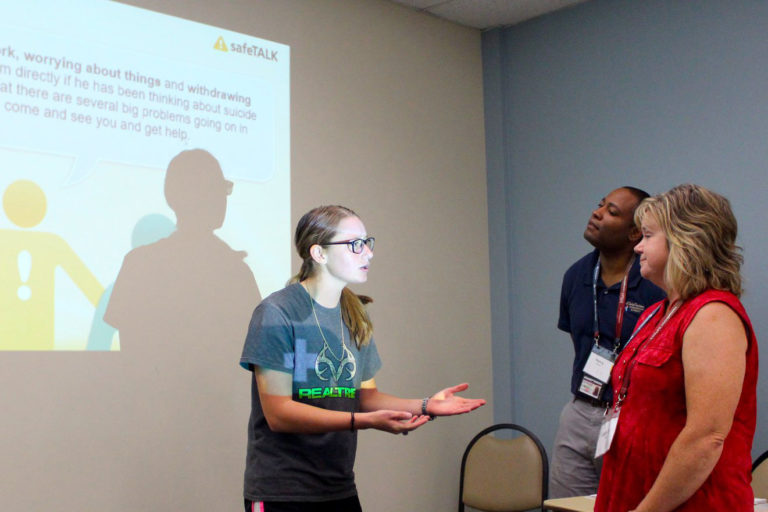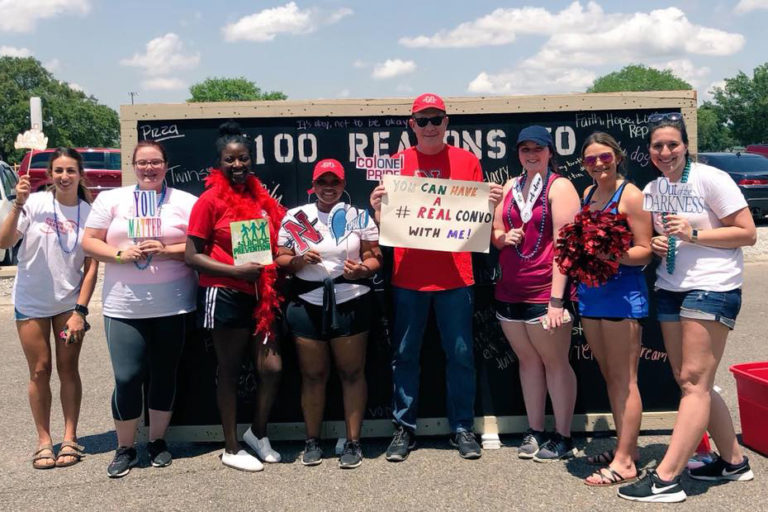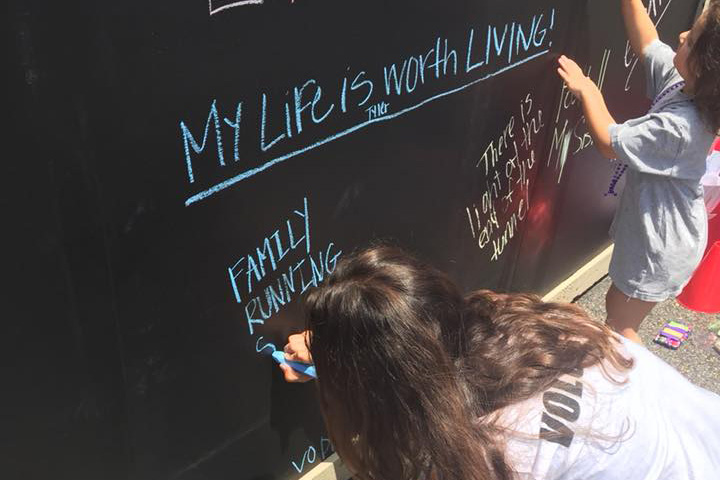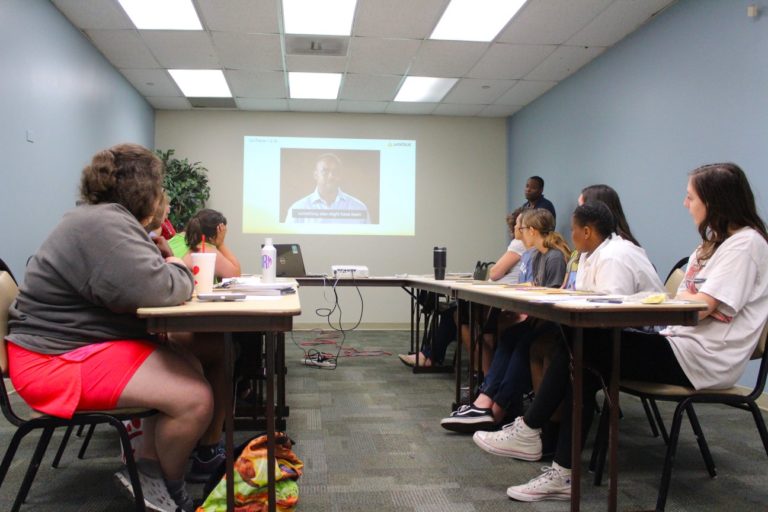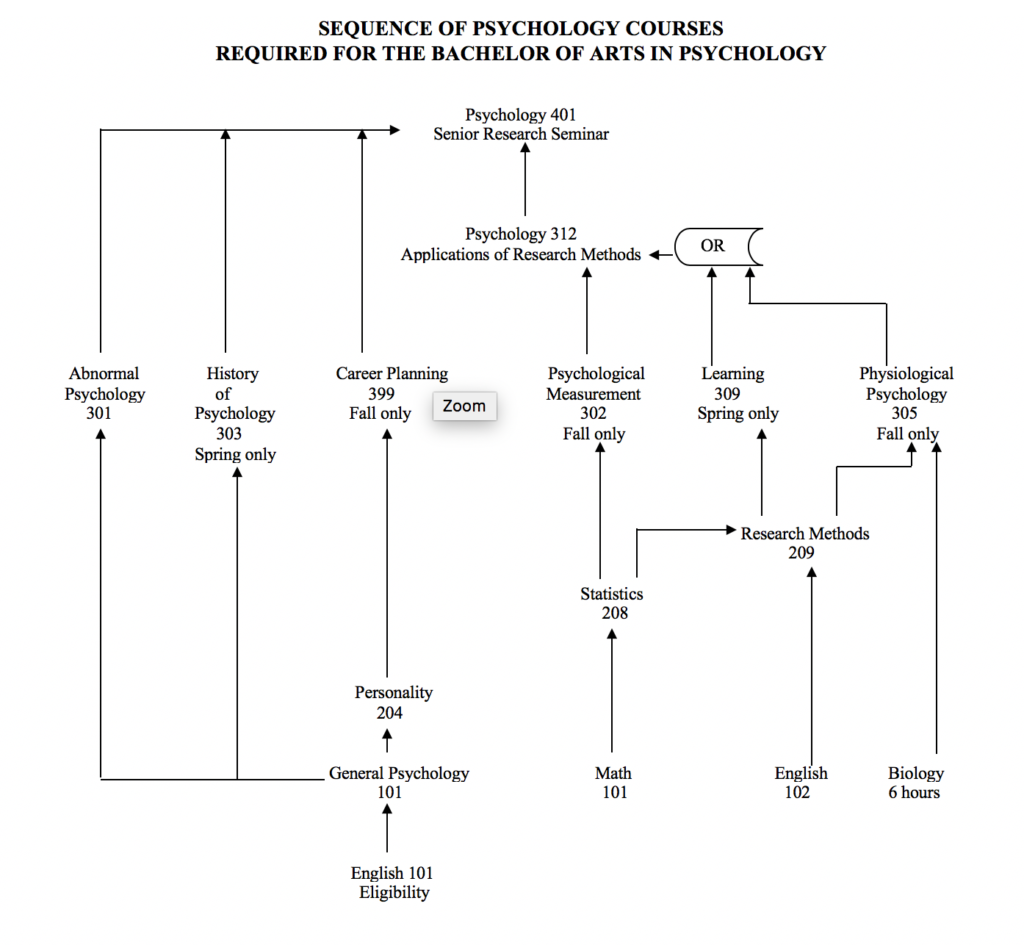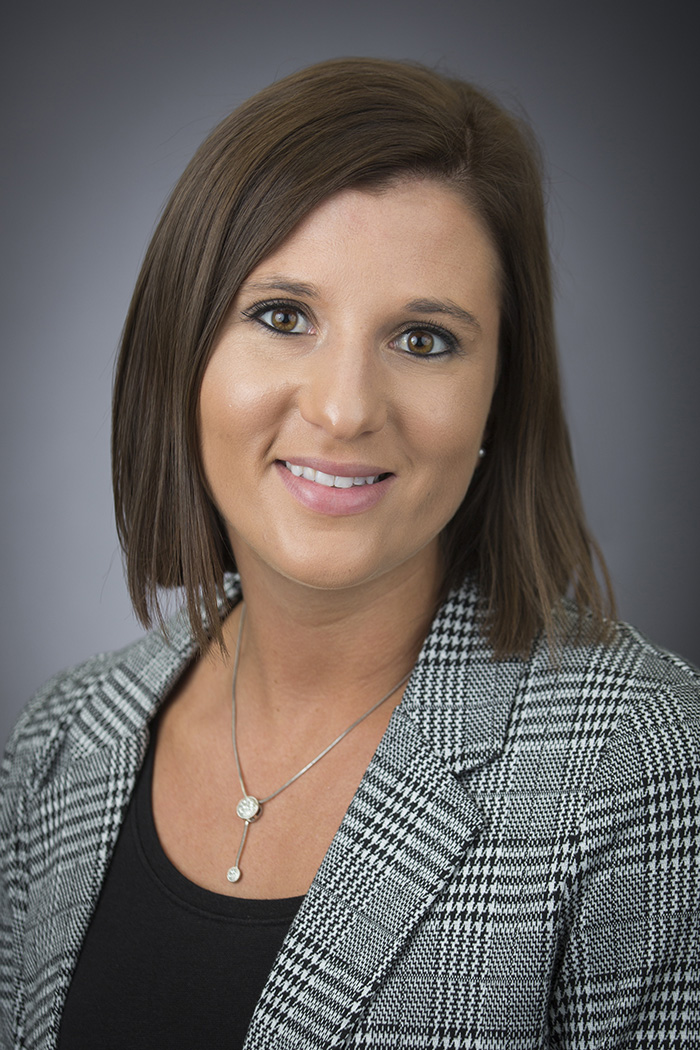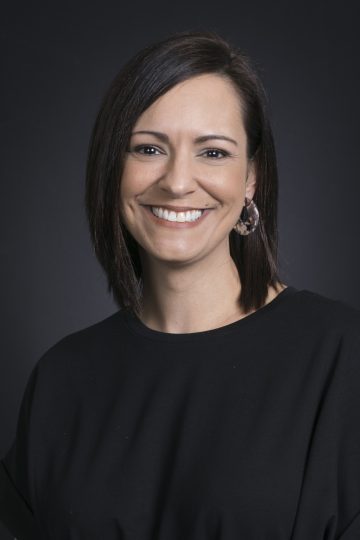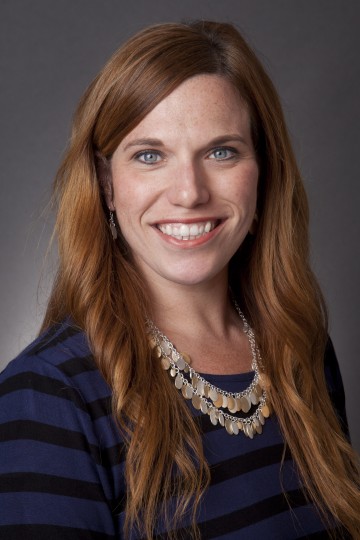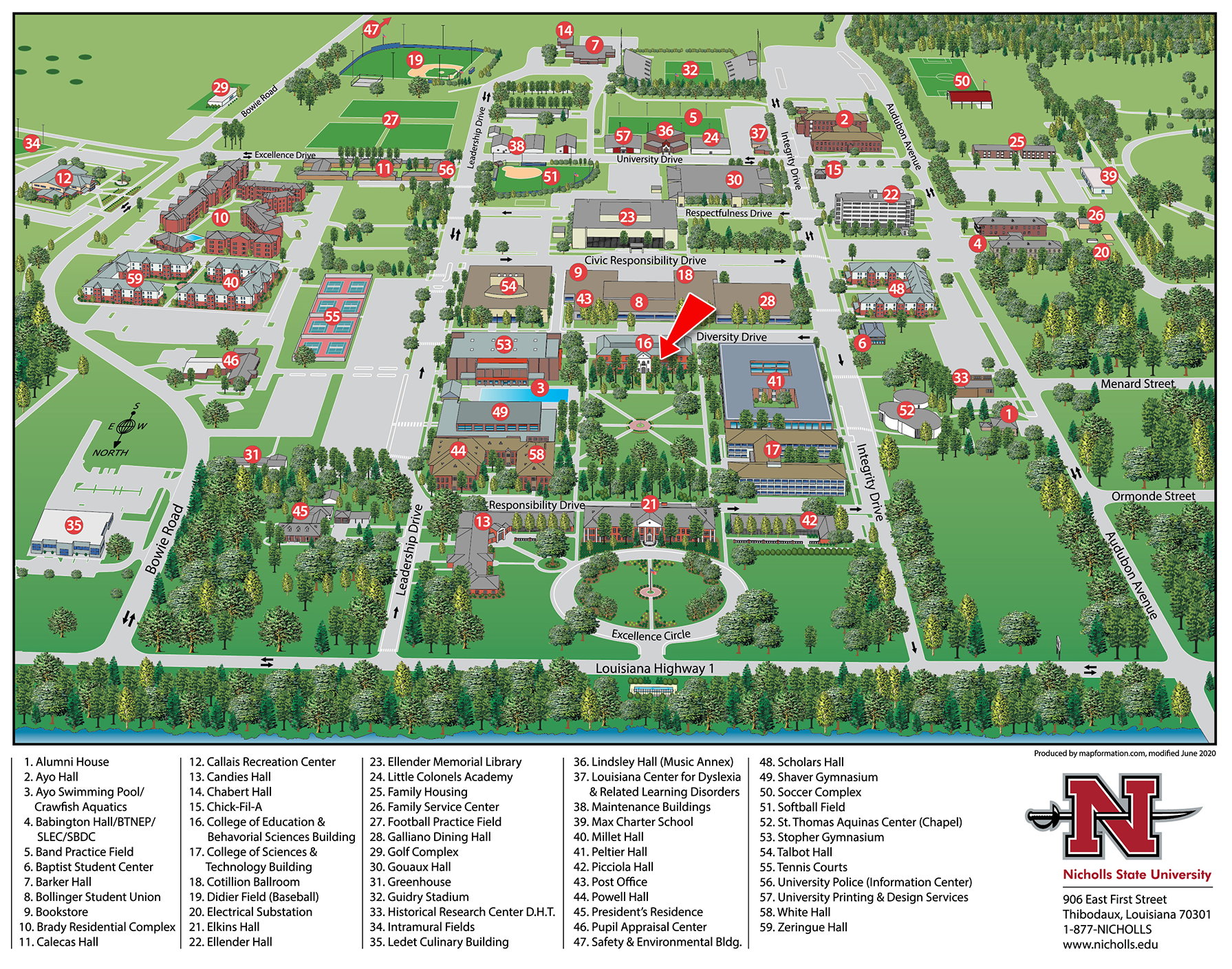PSYCHOLOGY
DEPARTMENT MENU
Department of Psychology, Counseling and Family Studies
Psychology – Bachelor of Arts Degree
The Nicholls psychology program helps students delve into the human psyche to explore what makes individuals both unique and alike. The program is designed to provide a strong foundation for students who wish to pursue advanced degrees in psychology or related areas upon graduation or to provide a strong liberal arts education that can be applied in a variety of fields.

“The undergraduate Psychology program at Nicholls gave me the foundation to easily transition into the School Counseling graduate program. I could not have completed the program without the constant support from everyone in the department. The faculty and staff in the Psychology Department helped to mold me into the School Counselor that I am today. I will always be thankful for my time at Nicholls and the relationships I was able to build with my professors and the Nicholls community.”
Haley Adams
Psychology, 2020
School Counseling, 2023
Degree Program Descriptions
Bachelor of Psychology
Disciplines within the Department of Psychology, Counseling and Family Studies are rich and diverse. One attribute that unites us is that all of our programs are very student-oriented. We provide an educational experience in and outside of the classroom (both face-to-face and online) which promotes development, critical thinking and maturity in our students. Our department has a tradition of excellence in teaching, research and service and we offer some of the best undergraduate and graduate programs at Nicholls State University.
Undergraduate students can choose either a Bachelor of Arts degree in Psychology or a Bachelor of Arts in Psychology with a concentration in Pre- Counseling. Graduate students can pursue one of our department’s two professional degrees; the Masters of in Clinical Mental Health Counseling and the Masters in School Counseling. We also have student organizations,
academic clubs and special-interest clubs which provide both social and academic experiences.
Pre-Counseling Concentration
This concentration is recommended for those who are interested in pursuing bachelor level careers in the counseling and/or helping profession. This concentration also provides the foundation for those who are interested in pursuing a master’s degree in a counseling related field such as Clinical Mental Health, School Counseling, and Social Work.
Concentration courses (PSYC 131, 234, 360, 370, 377, 448, 461, 464, 481, 482, 483 and 484) must be completed at Nicholls State University.
Our department has experts in child development, experimental psychology, forensic psychology, counseling, family law, neuropsychology and school psychology. Maintaining expertise is an on-going, laborious procedure often involving licensure and re-licensure. In addition, wherever eligible, our programs pursue national or regional accreditation, again a rigorous process.
As academics, we hold ourselves to these standards to assure that our students obtain an education of the “highest quality”. Students and faculty form a community; our students are active participants in that community, they energetically pursue that “quality”.
To quote Robert Persig (a philosopher who focuses on “quality”): “The place to improve the world is first in one’s own heart and head and hands.” Please explore the information on our webpage. We provide a broad base of understanding human behavior that will serve you well in any endeavor you choose. If you are interested in our Department’s undergraduate or graduate degrees, we would welcome the chance to explore the options our programs open for you to enhance all aspects of your personal development. We would like to work with you to enable you to become a person of the “highest quality”.
Pre Counseling Concentration Advisors:
Last names A-M:
Dr. Summer Arcemont
268 Hill Hall
985-448-4365
summerrae.arcemont@nicholls.edu
Last names N-Z:
Mrs. Kelly Guin
269 Hill Hall
985-448-4366
kelly.guin@nicholls.edu
Title IV-E Child Welfare Scholar Stipend Program
The goal of the Nicholls State University Title IV-E Stipend Program is to ensure the preparation of future graduates for competent practice in Child Protection, Family Services, Foster Care, Adoptions, and Home Development. Established in 2022, Nicholls State University became the first Psychology program to be included in the program.
Mission
To provide unique, immersive field experience opportunities to attract and prepare undergraduate students for a career in public child welfare in the Bayou Region of Louisiana.
Purpose
To train and prepare undergraduate Pre-Counseling students for competent child welfare and family service practices, and a career committed to the constant betterment of services for protection of children from maltreatment.
To promote collaboration between Nicholls State University, the Department of Children and Family Services, the Child Welfare Training Academy, and the Louisiana University Alliance.
What is the Title IV-E Child Welfare Scholar Stipend Program at Nicholls State University?
The Title IV-E Stipend Program encourages undergraduate Pre-Counseling students to prepare for a field intnership and a career in public child welfare. The Louisiana Department of Children and Family Services provides placements and direct supervision in one of the Thibodaux Regional Offices.
Nicholls State University students who participate are selected each semester on a competitive basis. They submit applications before the semester they intend to graduate, which includes a selection screening process composed of DCFS Supervisors, University Alliance Liasions, and Nicholls State University staff. Once selected, the scholars receive a $7,500.00 stipend, complete a semester internship with DCFS, and are required to apply for the Child Welfare Specialist Trainee position upon graduation to fulfill a one-year work obligation. Upon working for the agency for two years, the employee may apply for assistance with tuition, books, and technology through the Child Welfare Employee MSW Educational Support Program.
If you are a Junior Pre-Counseling student with an overall GPA of 2.7 (or better) and a 3.0+ GPA in your core PSPC courses, you are eligible to apply for the program.
How to apply
To apply to the stipend program, please email the Title IV-E Coordinator:
Mrs. Kelly Guin
269 Hill Hall
985-448-4366
kelly.guin@nicholls.edu
Interested in becoming a Psychology Major? Talk to one of our advisors today!
Psychology Advisors
Freshman:
Mr. Kevin Gordon
234 Elkins Hall
985-448-4102
kevin.gordon@nicholls.edu
Sophomores, Juniors & Seniors:
Last Names A–F:
Dr. Bridget Coddou
285 Hill Hall
985-448-4354
bridget.coddou@nicholls.edu
Sophomores, Juniors & Seniors:
Last Names G–J & Veterans:
Dr. Michelle Fowler-Savage
246 Hill Hall
985-448-4728
michelle.fowler-savage@nicholls.edu
Sophomores, Juniors & Seniors:
Last Names K–P:
Dr. Monique Boudreaux
267 Hill Hall
985-448-4468
monique.boudreaux@nicholls.edu
Sophomores, Juniors & Seniors:
Last Names Q–U:
Dr. Denis Soigner
280 Hill Hall
985-448-4359
denis.soignier@nicholls.edu
Sophomores, Juniors & Seniors:
Last Names V–Z:
Ms. Rhiannon Traigle
252 Hill Hall
985-448-4348
rhiannon.traigle@nicholls.edu
Psychology Pre Counseling Advising:
Last Names A-M:
Dr. Summer Arcemont
268 Hill Hall
985-448-4365
summerrae.arcemont@nicholls.edu
Psychology Pre Counseling Advising:
Last Names N-Z & Athletes:
Mrs. Kelly Guin
269 Hill Hall
985-448-4366
kelly.guin@nicholls.edu
PSPX, Psychology Pre Counseling Online Advising
Dr. Betsy Dupre
283 Hill Hall
985-448-4953
betsy.dupre@nicholls.edu
Job Opportunites
Psychology Undergraduate Job Opportunities:
Case Manager in medical or human services facilities – and related
Child Services Worker – and related
Community Service Counselor – and related
Mental Health Technician – and related
Customer Relations/ Management – and related
Human Relations Assistant – and related
Psychology Graduate Job Opportunities:
LPC – Licensed Professional Counselor
Human Services
- Community Mental Health Centers
- State Psychiatric hospitals
- Facilities for mentally impaired
Community Relations
- Local branches of national non-profit organizations
Public Relations
- Research
- Public Speaking

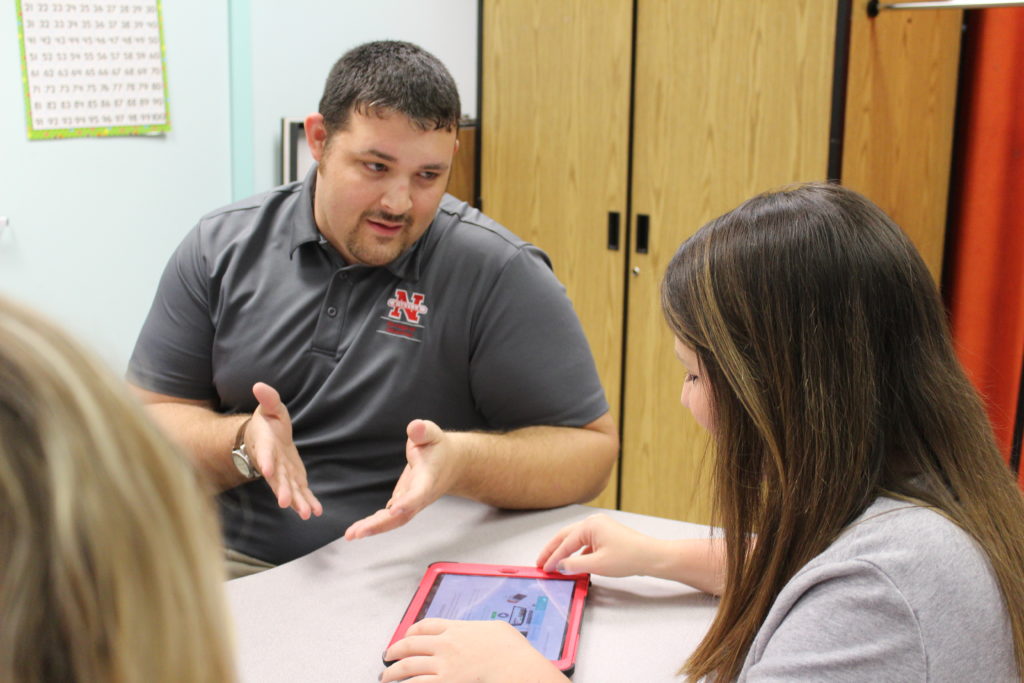
Facilities
The psychology departmental, instructional, clinical and research facilities occupy the second floor of Hill Hall. The facilities include:
- Study Zone: new study space for students that was made possible by Give N Day donations
- eight individual counseling/testing rooms with updated color video and audio monitoring equipment,
- a group counseling/staff room,
- an experimental psychology laboratory,
- a departmental conference room,
- a resource room containing occupational/educational materials
Student Organizations
Chi Sigma Iota
Chi Sigma Iota is an international honor society that values academic and professional excellence in counseling. We promote a strong professional identity through members (professional counselors, counselor educators, and students) who contribute to the realization of a healthy society by fostering wellness and human dignity.
Chi Sigma Iota has over 125,000 members who have been initiated into the Society through more than 400 chapters that have been chartered throughout our history. Prospective members must have a 3.5 GPA or higher and must have completed 9 hours or more in a counseling program. All qualifying members will be notified of their eligibility through email after they complete 9 hours. Induction into CSI takes place each fall and spring semester.
For more information, contact Dr. Chantrelle Varnado-Johnson at chantrelle.varnado-johnson@nicholls.edu
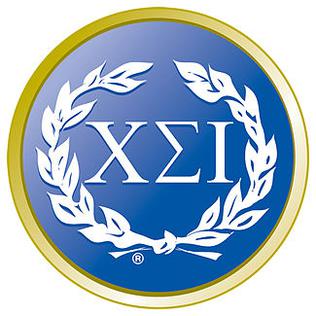
Psi Chi
 Psi Chi is the national honor society in psychology, founded in 1929 to encourage, stimulate and maintain excellence in scholarship and advance the science of psychology. Psi Chi is a member of the Association of College Honor Societies and is an affiliate of the American Psychological Association and the Association for Psychological Science.
Psi Chi is the national honor society in psychology, founded in 1929 to encourage, stimulate and maintain excellence in scholarship and advance the science of psychology. Psi Chi is a member of the Association of College Honor Societies and is an affiliate of the American Psychological Association and the Association for Psychological Science.
MEMBERSHIP REQUIREMENTS:
Undergraduate student applicants to Psi Chi must:
- be at least a second-semester sophomore,
- be enrolled as a major or minor in the psychology program,
- have completed at least nine semester hours of psychology,
- have an overall GPA of at least 3.0 and
- have a psychology GPA of at least 3.2.
Graduate student applicants to Psi Chi must:
- be enrolled as a graduate student in a psychology graduate program and
- have an overall GPA of at least 3.0 including psychology courses.
COST:
Lifetime membership is $65 ($55 national dues and $10 chapter dues).
MORE INFORMATION:
For more information, contact Dr. Betsy Dupre
Psychology Club
The Psychology Club at Nicholls State University focuses suicide prevention and awareness within our campus and community. We do this through fundraising for the American Foundation for Suicide Prevention.
If interested in joining please email the psychology club at nichollspsychologyclub@gmail.com!
Program Structure
The undergraduate psychology program can be viewed as a hierarchy of four levels, roughly corresponding to the freshmen, sophomore, junior and senior years:
Level I. Introductory Psychology: An introduction to the discipline for potential majors and non-majors.
Level II. Statistics and Research Methods: Emphasis is placed on critical thinking, data acquisition and analysis, language skills, problem solving and interpretation of empirical research. Preparation for empirically-based and knowledge base courses.
Level III. Knowledge Base Courses: (Physiological Psychology, Abnormal, Psychological Testing, Learning, Career Planning, History and Systems)
Level IV. Capstone: (Psychology 475). A course for graduating seniors requiring:
- a senior project to be presented to other students and faculty in oral and/or written formats and
- a series of locally constructed examinations and a nationally standardized examination demonstrating proficiency in both skills and knowledge.
- A minimum grade of C is required in ENGL 101, 102; MATH 101, and all psychology courses used to fulfill requirements of the major. The structure of the program leading to a bachelor’s degree in Psychology is hierarchical i.e., many of the required courses are sequenced and must be completed in the appropriate order.
CLICK HERE TO DOWNLOAD PDF VERSION
| YEAR* | COURSE NAME | COURSE NUMBER | REQUIREMENT | CREDIT HRS |
|---|---|---|---|---|
| 1 | BIOL Elective | GER | 3 | |
| 1 | BIOL Elective | GER | 3 | |
| 1 | ENGL | 101 | GER | 3 |
| 1 | ENGL | 102 | GER | 3 |
| 1 | Freshman Seminar Course | UR | 1 | |
| 1 | Humanities Elective | GER | 3 | |
| 1 | Humanities Elective | GER | 3 | |
| 1 | MATH | 100 or 101 | GER | 3 |
| 1 | MATH Elective | GER | 3 | |
| 1 | PSYC | 101 | GER | 3 |
| 1 | SPCH | 101 | OCR | 3 |
| 2 | Computer Literacy Elective | CLR | 2 | |
| 2 | ENGL | 366 or 368 | GER | 3 |
| 2 | Humanities Elective | GER | 3 | |
| 2 | Natural Sciences Elective | GER | 3 | |
| 2 | PSYC | 204 | 3 | |
| 2 | PSYC | 208 | 3 | |
| 2 | PSYC or Concentration Course | 209 | 3 | |
| 2 | PSYC or Concentration Course | 219 | 1 | |
| 2 | Social Sciences Elective | NON-PSYC | GER | 3 |
| 2 | Minor or Concentration Course | 3 | ||
| 2 | Minor or Concentration Course | ** | 3 | |
| 3 | Minor or Concentration Course | ** | 3 | |
| 3 | Minor or Concentration Course | ** | 3 | |
| 3 | PSYC | 301 | 3 | |
| 3 | PSYC | 303 | 3 | |
| 3 | PSYC | 305 | 3 | |
| 3 | PSYC | 309 | 3 | |
| 3 | PSYC or Concentration Course | 399 | 1 | |
| 3 | PSYC Elective or Concentration Course | ** | 3 | |
| 3 | PSYC Elective or Concentration Course | 300-level or above | 3 | |
| 3 | PSYC Elective or Concentration Course | 300-level or above | 3 | |
| 4 | Fine Arts Elective | GER | 3 | |
| 4 | Elective or Concentration Course | 2 | ||
| 4 | Minor or Concentration Course | ** | 3 | |
| 4 | Minor or Concentration Course | ** | 3 | |
| 4 | Elective or Concentration Course | ** | 3 | |
| 4 | PSYC Elective or Concentration Course | ** | 3 | |
| 4 | PSYC 475 or Concentration Course | 2 | ||
| 4 | Elective or Concentration Course | 3 | ||
| 4 | Elective or Concentration Course | 3 | ||
| 4 | Elective or Concentration Course | 3 | ||
| 4 | Elective or Concentration Course | 3 | ||
| TOTAL HOURS | 120 |
Psychology Minor
Students who are not majoring in Psychology may complete a minor in the field by earning 21 semester hours of credit as follows:
PSYC 101
PSYC 204 or 211
PSYC 208 or 301 or 302 or 402
and 12 hours of electives in Psychology.
Note: A grade of “C” or above is required for every course taken to minor in Psychology.
FACULTY
Dr. Kimberly Reynolds, LPC-S
Mary Kathryn Rodrigue Gastinel, PhD, LPC, NCC
Dr. Summer Arcemont, LPC-S, NCC
Dr. Monique Boudreaux
Dr. Bridget Coddou
Dr. Michelle De La Paz
Dr. Betsy Dupre, LPC-S
Dr. Michelle Fowler-Savage
Dr. R. Denis Soignier
Ms. Rhiannon Traigle
Chantrelle Varnado-Johnson, PhD
MORE INFORMATION
Q. Does the bachelor’s degree in psychology program at Nicholls follow any model or orientation?
A. While the bachelor’s degree program in psychology at Nicholls conforms to the behavioral model, many courses are offered that are consistent with the other (humanistic, cognitive) models.
Q. How favorably do graduates from the Nicholls psychology program compare nationally?
A. Nationally, 38 percent of psychology graduates attend graduate school. Sixty-eight percent of Nicholls psychology graduates attend graduate school within two years of graduation.
Nicholls psychology graduates have achieved a mean composite score on the nationally standardized Psychology Area of Concentration Test of 80th percentile.
Resources for choosing a major:
Psychology students are eligible for numerous scholarships through the Office of Financial Aid. First time, continuing and transfer students are encouraged to apply for local, state and national scholarships, which are listed on the Financial Aid Web site.
ALMA STARK CECIL SCHOLARSHIP is a one-time scholarship awarded to a full-time student with a 2.8 cumulative GPA, majoring in General Family and Consumer Sciences. The student must be enrolled in an internship or student teaching. DR. JUDY THERIOT LEADERSHIP AWARD is awarded to a full-time student of senior standing majoring in Family and Consumer Sciences, who has earned a 2.7 GPA with a 3.0 in FACS courses.
HERMANAS CLUB SCHOLARSHIP goes to a full time student of at least sophomore status who has maintained a satisfactory academic average and who holds no collegeissued scholarship other than one covering registration fees. Applicants must be majoring or minoring in special education. Need, personality, purpose, and leadership are also considered by the Hermanas Club. The recipient must maintain at least a 3.0 grade-point average.
LAFOURCHE ASSOCIATION FOR FAMILY AND COMMUNITY EDUCATION SCHOLARSHIP is awarded to a full-time student who has completed a minimum of 72 semester hours majoring in the area of Family and Consumer Sciences. The applicant must have a 3.00 or better overall average. Character, purpose, and leadership are other qualities that will be considered in addition to academic standing. Lafourche Parish students will be given priority, with students from surrounding parishes receiving second preference..
MARGARET V. JOLLEY FAMILY AND CONSUMER SCIENCES SCHOLARSHIP is awarded to a full time student majoring in general family and consumer sciences. The recipient must be of at least sophomore standing with at least a 3.0 grade point average. Need, personality, character, purpose, and leadership are also considered..
THE NORMAN SWANNER MEMORIAL SCHOLARSHIP IN EDUCATION is awarded to a full-time student enrolled in the College of Education. The recipient will be classified as either a sophomore or junior and will have earned a 2.50 GPA at the time of the award. The recipient shall hold the scholarship for two consecutive semesters, providing all of the above criteria is met. Primary consideration must go to a resident of Lafourche Parish. Should there not be a qualified applicant from Lafourche Parish, the scholarship may be awarded to any other student who meets the criteria.
THE RICHARD P. CHAMPAGNE MEMORIAL SCHOLARSHIP is awarded to a full-time student enrolled at Nicholls State University pursuing a degree in a field of service to persons with disabilities (ex. Medical Fields, Education, Psychology, Ministry, Social Work). The applicant must be a resident of Lafourche Parish. The application must be accompanied by a letter of professional reference. The applicant must have at least a 2.5 GPA and be enrolled in at least 12 hours. The scholarship is valued at $500 for one semester.
SARA SOLLARS MEMORIAL SCHOLARSHIP is awarded to a full time student majoring in Psychology or Sociology and who shows financial need. Awards are $100 per semester.
THE TERREBONNE ASSOCIATION FOR FAMILY AND COMMUNITY EDUCATION JEAN PICOU/HOMEMAKER COUNCIL SCHOLARSHIP is awarded annually to a student majoring in family and consumer sciences or agriculture. The recipient must be a full-time student with an overall grade-point average of at least 2.5. The $300 scholarship is awarded at the beginning of the fall semester.
Dr. Kristin Johnson-Gros, assistant professor and clinical director of the School Psychology Clinic at Mississippi State University
Psychology, 1996
Specialist in School Psychology, 1999
Dr. Kristin Johnson-Gros can still remember the pacing. Back and forth, she walked from one wall to another trying to retain the information she would need to know for her upcoming Theories of Learning and Statistics exams. Today, she values being challenged in both the undergraduate psychology and specialist in psychology programs at Nicholls.
“The school psychology program prepared me to be a great school psychologist by integrating theory into practice and also prepared me to be highly competitive with graduates of other nationally known institutions,” Gros says.
Gros currently works as an assistant professor for the school psychology program at Mississippi State University. She also serves as a consultant to the university’s Department of Education on new federal regulations and crisis response and preparedness.
As a Nicholls student, Gros worked as a behavior interventionist for an elementary school and then interned in Lafourche Parish School District. She earned her doctorate from the University of Southern Mississippi’s school psychology program. While pursuing her doctorate, Gros worked as a certified school psychologist and a consultant for the state of Mississippi and independent school districts.
Gros has served as a pediatric psychology intern at the University of Nebraska’s Medical Center Munroe Meyer Institute and is a national crisis trainer. Her research has also been published in national journals.
“The psychology professors at Nicholls have been and continue to be excellent mentors for me well beyond my educational career,” Gros says. “My most memorable moments at Nicholls are a collage of both personal and learning experiences. Obviously, the most memorable for me personally was meeting my husband, Gary Gros, and making some great new friends.”
Jaclyn Legendre, licensed specialist in school psychology for Brazosport Independent School District
Psychology, 2001
Specialist in School Psychology, 2005
After graduating magna cum laude from Nicholls with a psychology degree, Jaclyn Legendre decided to stick with the Thibodaux campus for her graduate studies. She immediately enrolled in the Specialist in School Psychology program. When it came time for Legendre to begin her year-long internship, however, she chose to branch out.
Legendre moved to Lake Jackson, Texas, to complete her internship in the Brazosport Independent School District. After finishing her internship and graduating, Legendre accepted a permanent job as a licensed specialist in school psychology with her internship school district.
“The research experience that I was involved in during graduate school and the externship that we had to complete at Nicholls best prepared me for my career today,” Legendre says. “It is a long journey, but once you have graduated, it is well worth it.”
Upon graduation, Legendre completed requirements to become a Nationally Certified School Psychologist. In Brazosport Independent School District, she participates in intervention strategy planning for students with academic or behavioral difficulties. Legendre also conducts and interprets full and individual evaluations and provides consultation to district staff to improve the academic and social-emotional success of students.
Legendre says she enjoyed the relatively small class sizes at Nicholls and will always remember when she was “hooded” on stage during commencement for her specialist degree.
Shannah Tabor Ordoyne, school psychologist/structured learning center facilitator at W.S. Lafargue Elementary
Psychology, 2001
Specialist in School Psychology, 2005
Few people land the perfect job right out of college. But Shannah Tabor Ordoyne couldn’t imagine working anywhere else.
After earning a bachelor’s and specialist degree from Nicholls, Ordoyne was hired as a school psychologist/structured learning center facilitator at W.S. Lafargue Elementary School in Lafourche Parish.
“If I could have picked any position and place of employment, this is exactly what I would have chosen,” Ordoyne says.
Ordoyne earned a bachelor’s degree in psychology and an associate degree in general business in 2001. She immediately entered the school psychology specialist program, where she held assistantships in the Testing Center/Office of Disability Services and the Center for the Study of Dyslexia and Related Learning Disorders.
As a graduate student, Ordoyne also counseled clients in the Psychological Training Clinic and worked with students in Lafourche Parish School System through an externship. Research studies she conducted during the externship are currently being published in reputable psychological journals.
“My professors helped me with the background knowledge needed for my career, whereas my assistantship and externship provided me with the hands-on experience with clients and students that I needed to become successful,” Ordoyne says.
Ordoyne, a Nationally Certified School Psychologist, is responsible for providing consultative, counseling, intervention and transition services to students, teachers, parents, administrators and support personnel.
“Find what it is that you want out of life and keep working towards that goal,” Ordoyne advises students. “Everything you need to know will be presented to you; you just need to show up, put in your share of hard work and things will fall into place.
Selecting a Major
- Six Signs You Should Change Your Major
- Common Misperceptions about Choosing a Major
- Choosing a College Major: How to Chart Your Ideal Path
- Common Mistakes Students Make in Choosing a Major
- Myths About Choosing a College Major
- Changing Your Major
Careers
- Health Guide USA Psychologist Job Outlook
- Occupational Outlook Handbook
- What can I do with this Major?
- The 9 Highest Paying Psychology Careers
Professional Organizations
- American Psychological Association
- Association for Psychological Science
- Louisiana School Psychological Association
- Louisiana Counseling Association
- National Association of School Psychologists
- American School Counselor Association
- American Counseling Association
- PSI CHI National Honor Society in Psychology
- United States Department of Education
- Louisiana State Department of Education — School Psychology
CONTACT INFORMATION
Department of Psychology, Counseling
and Family Studies
217 Hill Hall
P.O. Box 2075
Thibodaux, LA 70310

